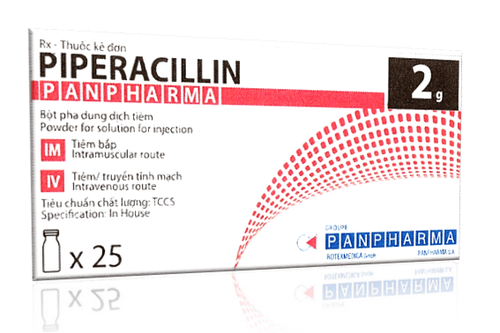This is an automatically translated article.
The article is professionally consulted by Master, Doctor Nguyen Thi An - Pediatrician - Neonatologist - Department of Pediatrics - Neonatology - Vinmec Ha Long International General Hospital. The doctor is a person who is very passionate about health care for children and has experience in successfully treating many difficult cases in infants.Group B Streptococcus is a group of bacteria that pregnant women can contract. This is a dangerous disease that can cause serious complications such as sepsis, pneumonia, meningitis or even death in babies.
1. What is Group B Streptococcus in pregnant women?
Group B streptococcus in pregnant women (English name Group B streptococcus - GBS) is a common bacteria in the gastrointestinal tract and urinary tract, genital tract. This bacteria is present in 20-30% of pregnant women and usually does not cause any symptoms.Cause of group B strep infection : GBS is not a sexually transmitted disease but a symbiotic organism - living in the body. Group B Streptococcus is dangerous? In most cases, GBS is not harmful to women. However, in some cases, GBS causes cervicitis or urinary tract infections in pregnant women. In particular, because group B strep exists in the vagina, it can infect the newborn during labor and cause a number of dangerous diseases.
2. Symptoms of group B strep infection during pregnancy

Mẹ bầu nên cảnh giác với một số triệu chứng sau
Premature labor (before 37 weeks of pregnancy). Water breaks prematurely before 37 weeks without signs of labor. Water breaks early 18-24 hours before labor. High fever over 37.8°C during labor. Have had GBS infection in a previous pregnancy. Detecting GBS in urine during pregnancy. Previous birth history of the child with a group B strep infection.
3. Effects of Group B Streptococcus on Newborns
Group B strep during pregnancy can cause harm to the fetus such as: Lead to premature labor, premature rupture of membranes, and inflammation of the membranes. In pregnant women, GBS can also cause UTIs, pyelonephritis, osteomyelitis, endometritis, and postpartum mastitis.In infants, group B strep is considered the leading cause of infection. This group of bacteria can cause 2 clinical conditions in neonates:
Early neonatal infection: Occurs in the first 7 days after birth, usually within 24 - 48 hours after birth. Early-onset symptoms in children include: apnea, lethargy, hypotension, respiratory failure and high mortality from pneumonia, sepsis, and meningitis. Late neonatal sepsis : Occurs in infants 7 to 90 days old. Group B strep bacteria can be passed from mother to baby during labor or later exposure, through breast milk contaminated with GBS or the mother having GBS mastitis. The most common form of infection with group B strep is meningitis in infants. Children with meningitis can experience serious and long-term consequences such as: Deafness, mental retardation, motor and mental retardation, etc.
4. Measures to prevent mother-to-child transmission of group B streptococcus
To screen for group B streptococcus, a GBS test should be performed in pregnant women. The test is done when the fetus is 35 - 37 weeks old, by taking vaginal and anal fluid for testing.After being diagnosed with group B strep infection, pregnant women need to strictly follow the doctor's instructions to avoid infecting the fetus. As a precaution, doctors often prescribe intravenous antibiotics from the beginning of labor or from the time the water breaks until the baby is born to reduce the risk of bacteria being transmitted from mother to baby. Ideally, antibiotics should be given at least 4 hours before the baby is born.

Nên tầm soát liên cầu khuẩn nhóm B khi thai được 35-37 tuần
Please dial HOTLINE for more information or register for an appointment HERE. Download MyVinmec app to make appointments faster and to manage your bookings easily.













